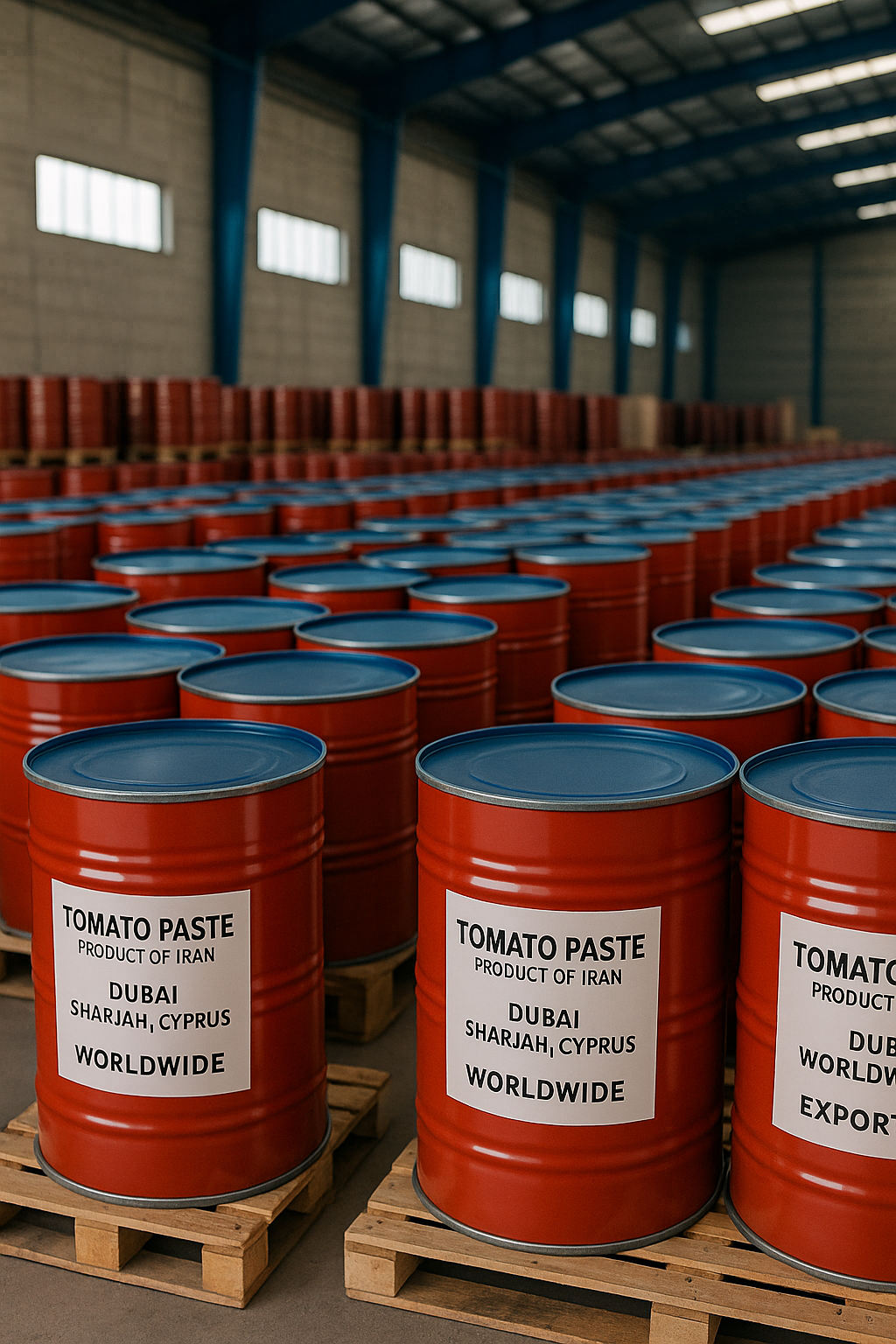Your cart is empty.
- +989365257488
- info@tomexa.com
- Head office: United Arab Emirates

Buying tomato paste in bulk is cost-effective and ensures a steady supply for your production or distribution needs. Importers can secure better prices and consistent quality by establishing long-term relationships with suppliers.
There are several types of tomato paste available based on concentration (e.g., 28-30%, 36-38%) and packaging (e.g., aseptic drum, tin can, sachets). Each type serves different market demands and usage purposes.
Check for Brix level, color, pH, mold count, and absence of preservatives. Request COA (Certificate of Analysis), technical data sheet, and product samples to verify quality before purchasing.
Look for certified suppliers (ISO, HACCP), customer reviews, product range, and export experience. A good supplier offers transparency, competitive pricing, and timely shipment.
Common packaging includes aseptic drums (220L), tin cans (400g, 800g, 3kg), and sachets (50g, 70g). Choose packaging based on your target market and storage/transport conditions.
Price depends on tomato season, raw material costs, processing method, packaging, and destination. Discuss with your supplier for updated FOB or CIF prices.
Ensure you receive commercial invoice, packing list, certificate of origin, phytosanitary certificate, and Bill of Lading. Clarify lead times and Incoterms (e.g., FOB, CIF).
“For more information about the process of exporting aseptic tomato paste, visit this page on our website. You can also check out this official report about global tomato paste export
Buying tomato paste in bulk can give you a competitive edge. Work with trusted suppliers, understand your market needs, and verify quality to ensure a successful import experience.
Need a trusted tomato paste supplier? Contact Us today and get a competitive quote with full technical specifications.
Subscribe to our newsletter and receive the latest updates on aseptic tomato paste and fruit juice concentrates, new products, and export offers.
